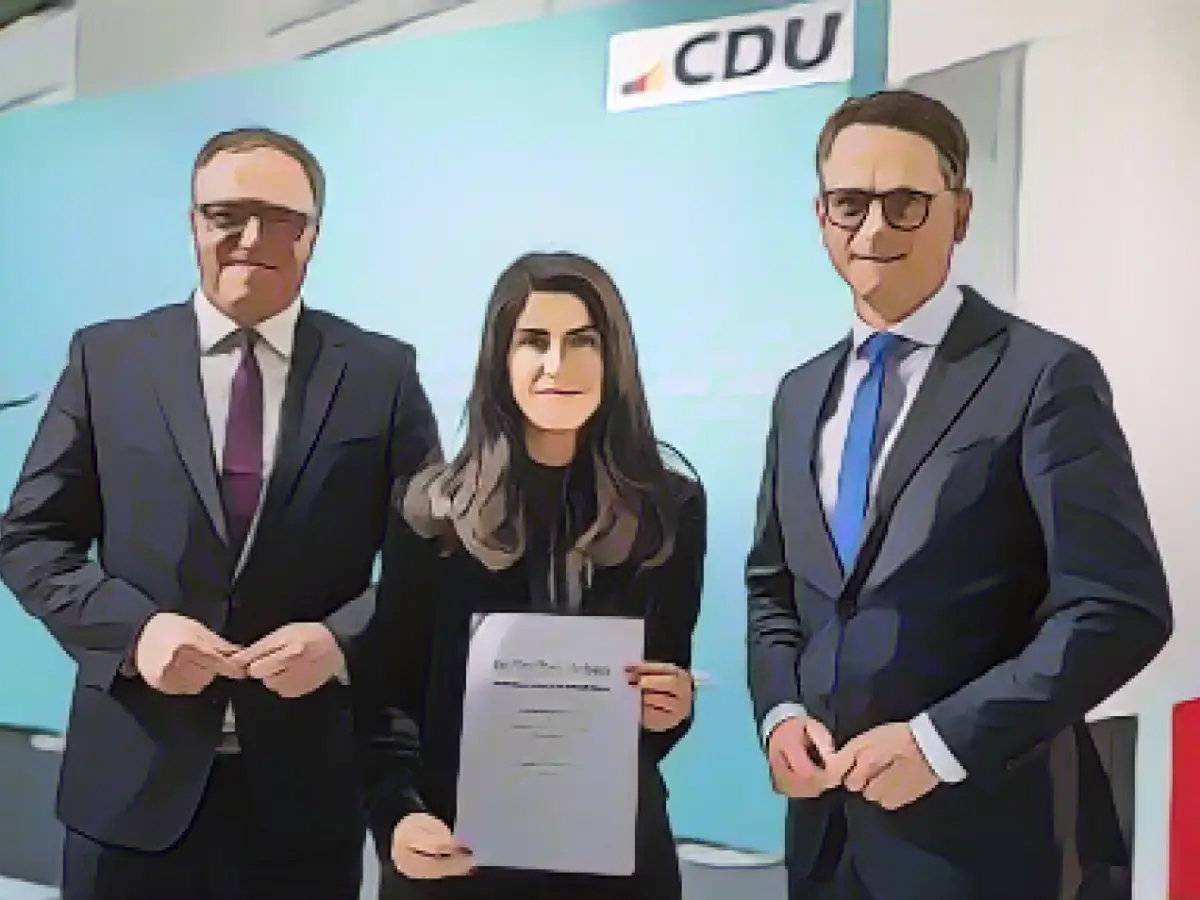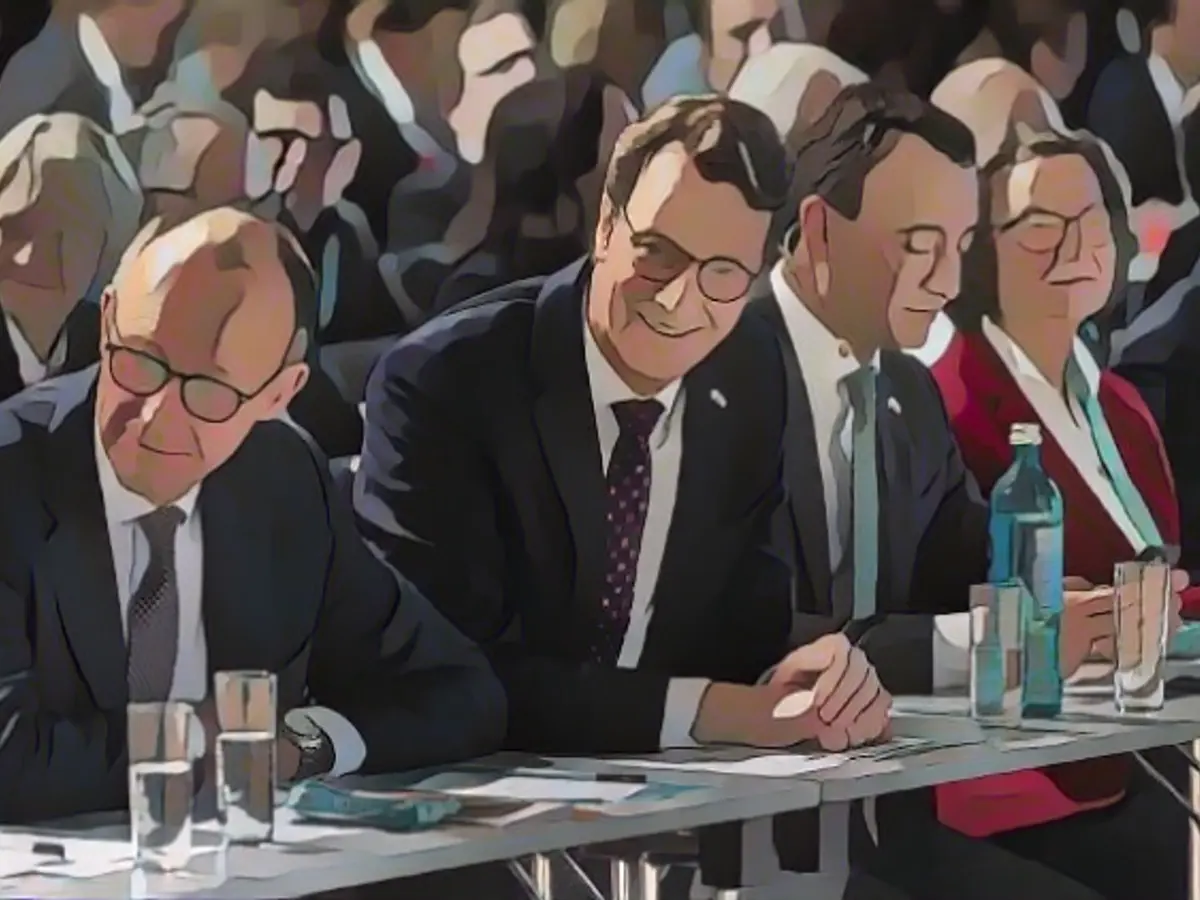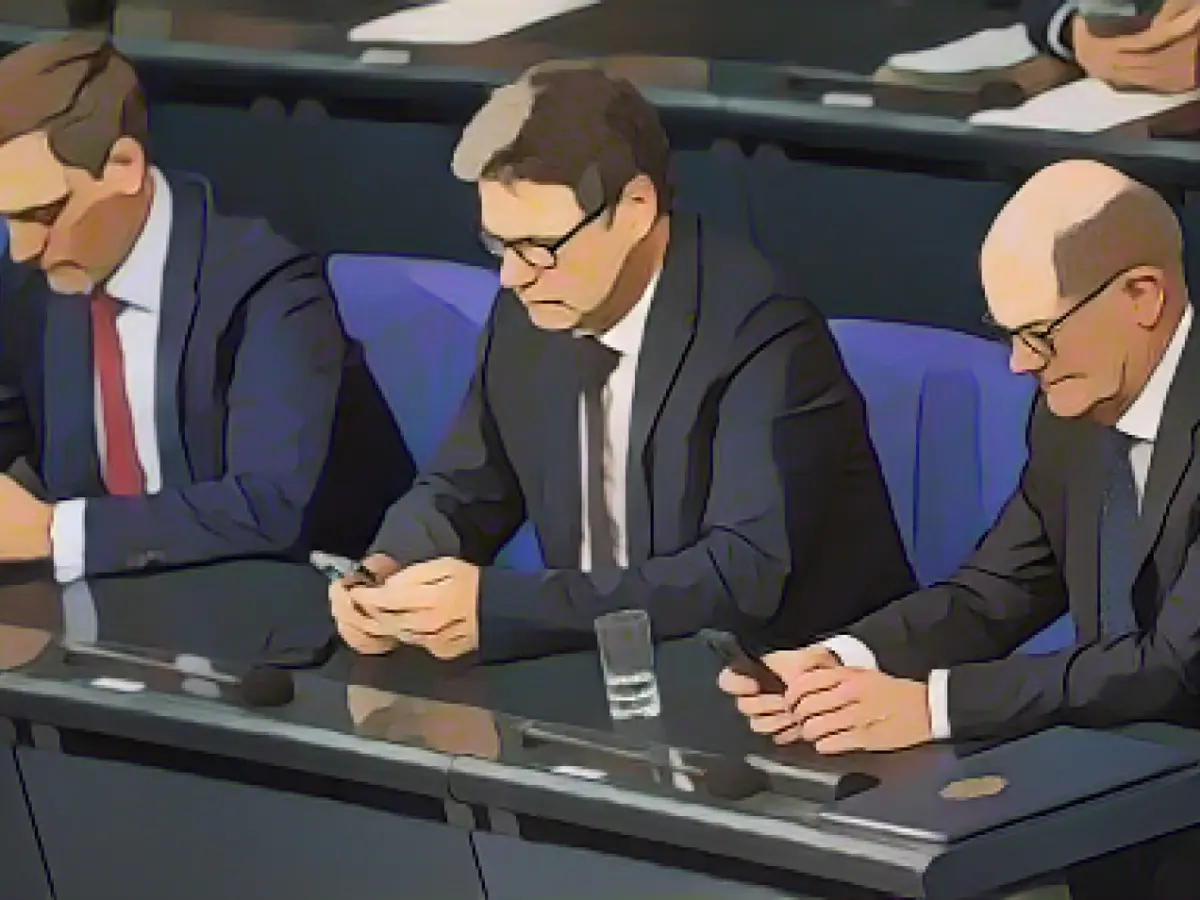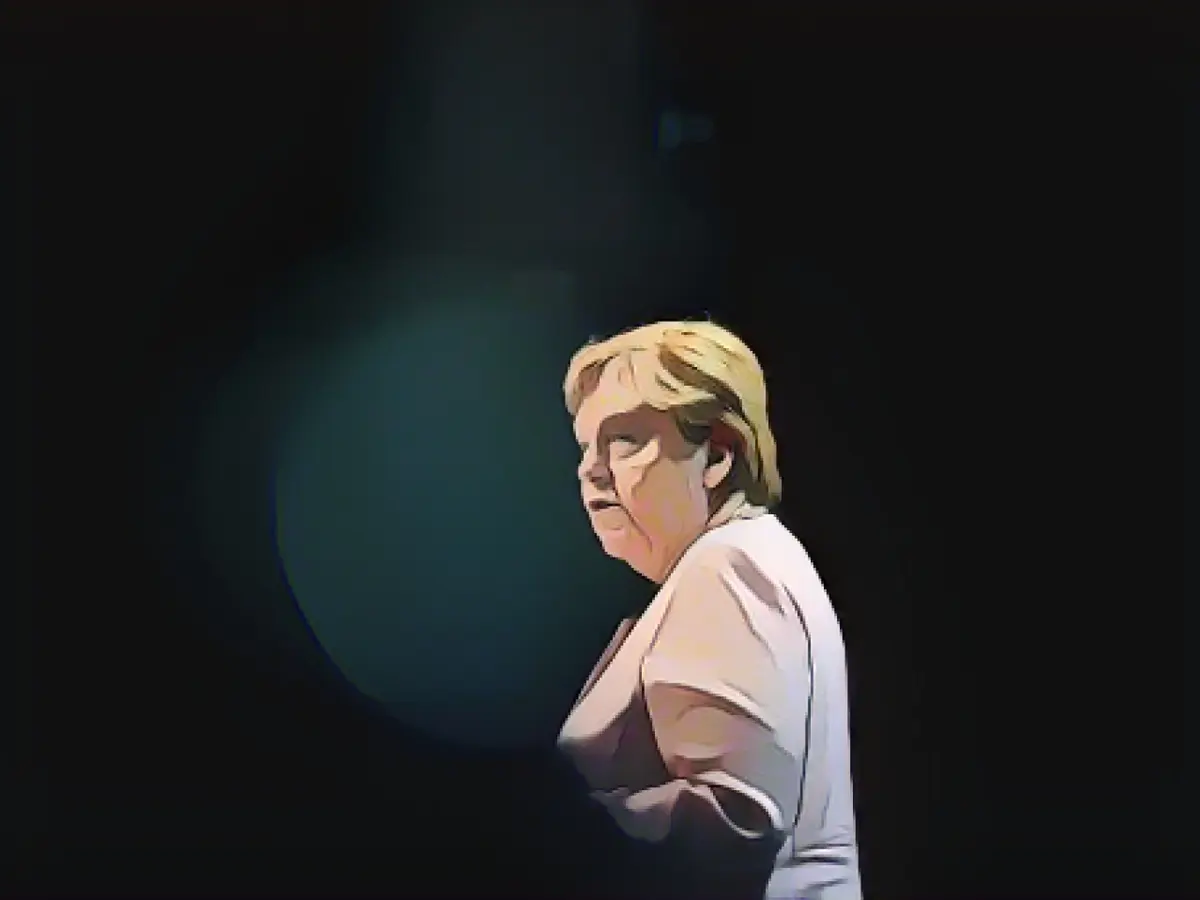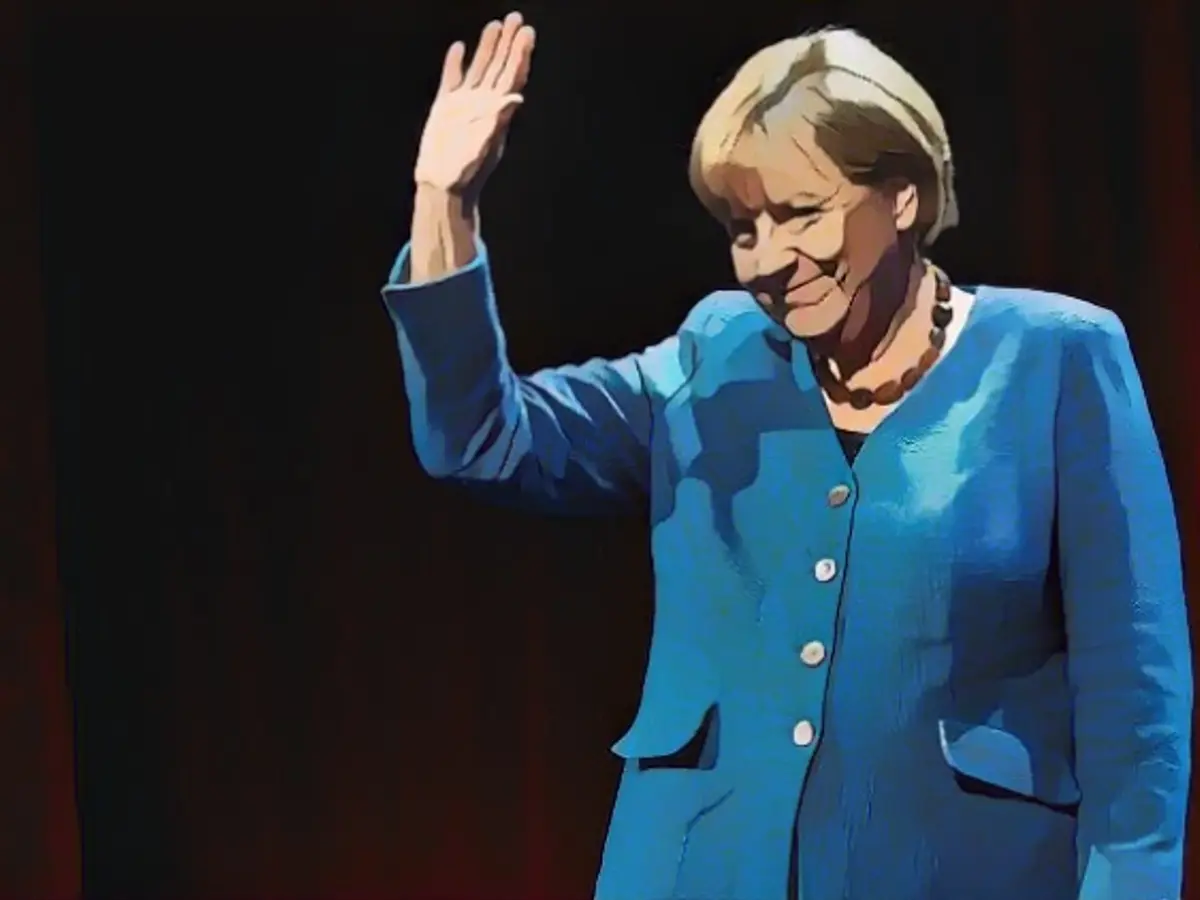In the realm of political discourse, the reigning CDU, led by Secretary General Carsten Linnemann, asserts their ability to rule once more. Following a series of top-committee meetings in Berlin, Linnemann declared that, were an early general election to arise, the party would be primed and ready.
Newspaper takes on the CDU's new program with a plethora of perspectives. The Reutlinger Generalanzeiger, for instance, portrays this program as a rebound to the CDU's more conservative roots. This rebirth, seeing the party's stance on migration, employment, and energy transition, holds more conservative views than the current coalition government of SPD, Greens, and FDP. The party, with improved poll results, aims to close the divisions left by Merkel's era while steering clear of the far-right.
The Münchener Merkur takes a different angle, proclaiming the plucked but matured CDU as a party now more comfortable with its conservative narrative. It criticizes the Merkel-era's mushy centrist approach, where policy decisions left the populace unserved, particularly in the field of migration. The CDU's mission statement - "Muslims who share our values belong to Germany" - stands as a sharp departure from previous pronouncements.
Stuttgarter Zeitung, in agreement, highlights the new CDU program as a beacon of stability during a time when the current traffic light government leaves many in search of guidance. Doubts linger, however, about resurrecting the controversial Leitkultur slogan that Merz has embedded within the program.
Frankfurter Allgemeine observes the CDU recovering from departing from the chancellorship, regaining strength in opposition and proposing changes in key policy areas that the continuously strained 'progressive coalition' finds it challenging or impossible to introduce.
The Leipziger Volkszeitung voiced doubts about the CDU's ability to campaign effectively following their upcoming election bid, casting uncertainty on the party leadership, specifically Friedrich Merz, despite their hopes of making the CDU a viable governing option once more.
In contrast, the Nürnberger Zeitung aims to address immigration-related concerns, advocating that curbing uncontrolled immigration and establishing functioning protocols is essential to the satisfaction of the citizenry.
Handelsblatt's report suggests that a change in direction is underway, marking the CDU's departure from former Chancellor Merkel's influence. The new program sets the stage for the introduction of fourth and fifth-generation mini-reactors, which may contribute to an affordable and environmentally mindful energy supply. For industry representatives, this program serves as a much-needed breath of fresh air, following the uncertainties of the Merkel years.
Kölner Stadtanzeiger grapples with the CDU's shift in party philosophy, unsure if the campaign promises to achieve clarity and a coherent profile.
The Neue Zürcher Zeitung highlights the CDU's new course under Friedrich Merz as the long-overdue correction. Embodying a bourgeois force on the brink of losing its distinction from the SPD and Greens, Merz's new plan has potential.
Finally, the Rhein-Neckar-Zeitung discusses the potential for the CDU to create an epoch-defining program on par with the SPD's 1925 plan; a proposal for the United States of Europe. The CDU's vision focuses on individual and material satisfaction, including an emphasis on longer work hrs and tax breaks, promising greater happiness.
Enrichment Insights
- The Christlich-Demokratische Union (CDU) is the conservative, Christian-democratic political party in Germany, serving as the country's center-right force.
- The term "Leitkultur" derives from the word "Leitlinien," referring to guiding principles, principal trends, or key signs in social issues. Introduced by Former President Christian Wulff in 2010, "Leitkultur" represented a reaction to multiculturalism and the increasing significances of religious and ethnic diversities in German society.
- As of 2022, Olaf Scholz, leader of the SPD, serves as Chancellor of Germany, with Annalena Baerbock as vice chancellor and leader of the Green Party.
- The current German government, a collaboration between the SPD, Greens, and the Free Democratic Party (FDP), serves as the traffic light coalition, named due to the party's respective colors: red, green, and yellow.
"Press reviews - A shift to the right or a return to the center? What the press says about the CDU's basic program" www.stern.de. January 28, 2023. Accessed: January 29, 2023.
